| "We need to bring back all the women who have left the labor force and return back to the market to get a full recovery -- and family paid leave absolutely helps in that dimension. Now, four weeks is better than zero, so I think that that is certainly progress made." - Gita Gopinath, chief economist of the International Monetary Fund, on how to help women return to the workforce.
Welcome to the "Face the Nation" Five at Five newsletter. Scroll down for your five takeaways from today's broadcast of "Face the Nation with Margaret Brennan" on CBS. Did someone forward you this? Sign-up at cbsnews.com/email. 1. Thompson says Facebook is "working with" January 6 select committee 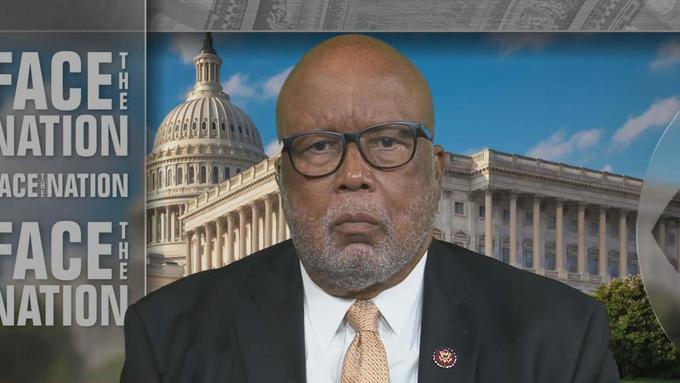
Democratic Representative Bennie Thompson, the chairman of the House select committee investigating the January 6 attack on the U.S. Capitol, said Sunday that Facebook is "working with" the panel to turn over requested information relevant to its probe.
What Thompson said: "We are in the process of negotiating with Facebook and those other platforms to get certain information. But it's clear that the January 6 organization, per se, used them as an organizing tool. To the extent that we can identify what will happen, that's the committee's charge from the House of Representatives. We'll do it. But at this point, Facebook is working with us to provide the necessary information we requested. At that point, staff and the committee will review that information. And if it's consistent with some of the things that we're hearing coming from other areas, then obviously it's a problem." Why it matters: The January 6 select committee sent Facebook and 14 other social media companies separate letters in August asking them to provide records related to the January 6 assault, including documents about the spread of misinformation, efforts to reverse the outcome of the 2020 presidential election and foreign malign influence in the election. In his letter to Facebook, the Mississippi congressman also asked the company about policy changes it may have made to address misinformation, violent extremism and foreign influence, including banning such material from the platform. Thompson said in an interview with "Face the Nation" that "it's clear" people involved in the January 6 assault used Facebook and other social media sites as an "organizing tool," and the committee is negotiating with the companies to obtain information useful to its probe. 2. Gottlieb says kids could start getting vaccinated as soon as November 4-5 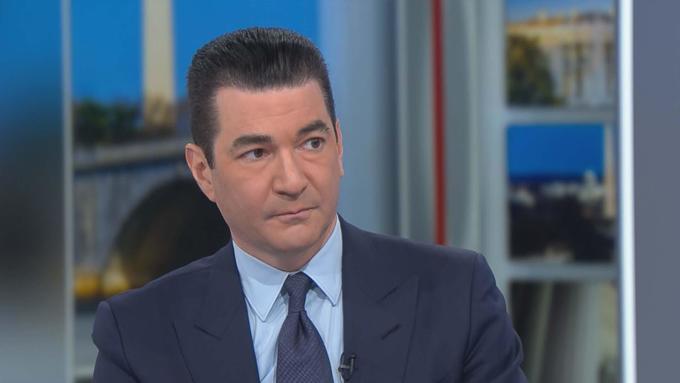 Former FDA commissioner Dr. Scott Gottlieb predicted Sunday on "Face the Nation" that the Biden administration could begin rolling out COVID-19 vaccines for children as soon as November 4-5, right after a Centers for Disease Control and Prevention panel decides whether to grant emergency use authorization for the COVID-19 vaccine for children ages 5-11. What Gottlieb said: "It could be stored in a regular refrigerator for up to 10 weeks. It was purposely packaged that way. And so, the idea is to try to get it into pediatrician's offices because we know that getting children vaccinated is a much more consultative endeavor." Why it matters: The Biden administration is making the effort to push the vaccine directly into pediatricians' offices, Gottlieb said. Pfizer, whose board Gottlieb sits on, is developing a small tray that carries 10 vials at a time and a storage container small enough for small-to-medium sized pediatricians' office to stock the vaccine and deliver it. Many parents may not want to drag their children into a mass vaccination site or pharmacy, Gottlieb said, and would rather have their children in the comfort of their own pediatrician's office. 3. Khalilzad sticks by his Taliban deal, says the U.S. should have pressed President Ghani harder 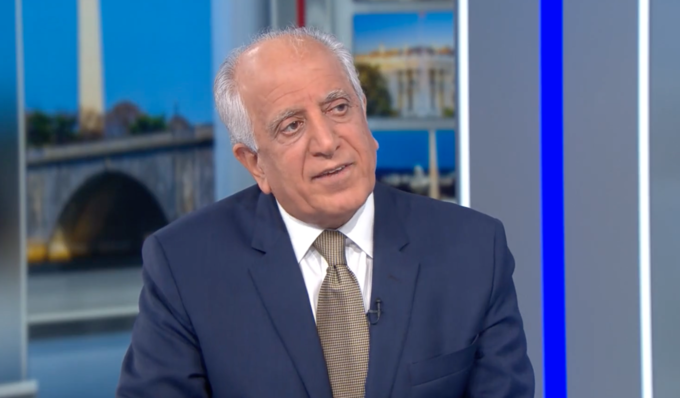 In his first interview since resigning as the U.S.'s chief negotiator with the Taliban, former Ambassador Zalmay Khalilzad strongly defended the deal he negotiated to withdraw U.S. troops from America's longest war, but told "Face the Nation" moderator and CBS News chief foreign affairs correspondent Margaret Brennan that he objected to the direction of the Biden administration's Afghanistan policy. What Khalilzad said: "One reason I left the government is that the debate wasn't really as it should be based on realities and facts of what happened, what was going on and what our alternatives were." Why it matters: The longtime diplomat refrained from directly criticizing President Joe Biden, whom he considers to be a friend. However, he made clear that the withdrawal that he negotiated, known as the Doha Agreement, was meant to be "conditions-based" rather than driven by a calendar date. Mr. Biden has publicly argued that he inherited a deal that locked him into a withdrawal date or face the undesirable option of deploying more U.S. troops in order to regain leverage against the Taliban. The February 2020 agreement was a package deal that stipulated U.S. troops would withdraw within 14 months (Mr. Biden slid it to 18 months) but also said that a new Afghan government would be formed and a ceasefire implemented. The Taliban also committed not to host al Qaeda. 4. Humanitarian crisis surges under Taliban rule of Afghanistan 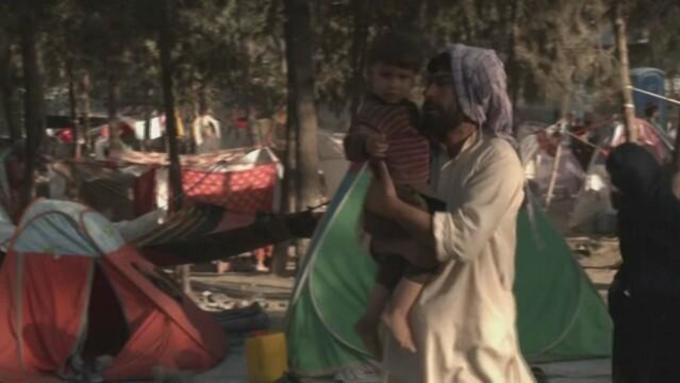 CBS News' Imtiaz Tyab reports from Kabul on the state of the country following the U.S. withdrawal. 5. Five at Five exclusive: We asked a pediatrician about the COVID vaccine for kids. Here's what he said. 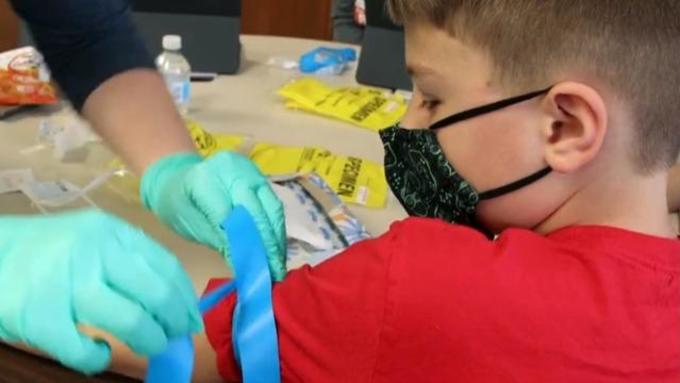
Dr. Richard Besser, Robert Wood Johnson Foundation president and former acting CDC director, spoke to "Face the Nation" for a Q&A on the vaccine for 5-11 year olds. See more of his conversation Monday on CBSNews.com.
What would you tell parents who are still unsure about the COVID-19 vaccine? It is understandable that parents would have questions and concerns about any new vaccine. Polling shows that parents are split on COVID-19 vaccines for children: some plan to get their children vaccinated right away; some have no intention of doing so at all; and some prefer to take a 'wait and see' approach. We have seen these divergent viewpoints play out with vaccines for both adults and adolescents, so it is not a surprise to see it with younger children as well, especially since the clinical trials for children at this age level were far smaller than those conducted for adults. As a pediatrician, I've spent many hours counseling parents on vaccines for children. Just a few days ago, in the clinic where I still see patients, I talked with a mother about vaccines for her teenage sons. She wants to see more data before she makes her decision. We had an open and respectful conversation. In my experience, pressuring and berating people doesn't work. The first step is to listen; it's important that we give people the time and space to ask questions and have their concerns heard. Parents should bring those questions or concerns to a health care provider or others they trust to get accurate information. Vaccine misinformation is rampant and its continued spread ultimately disrespects and endangers those who may have legitimate questions for which they're seeking honest answers. The approach that is being planned for administering COVID-19 vaccines to younger children will make it easier for these conversations to happen. |